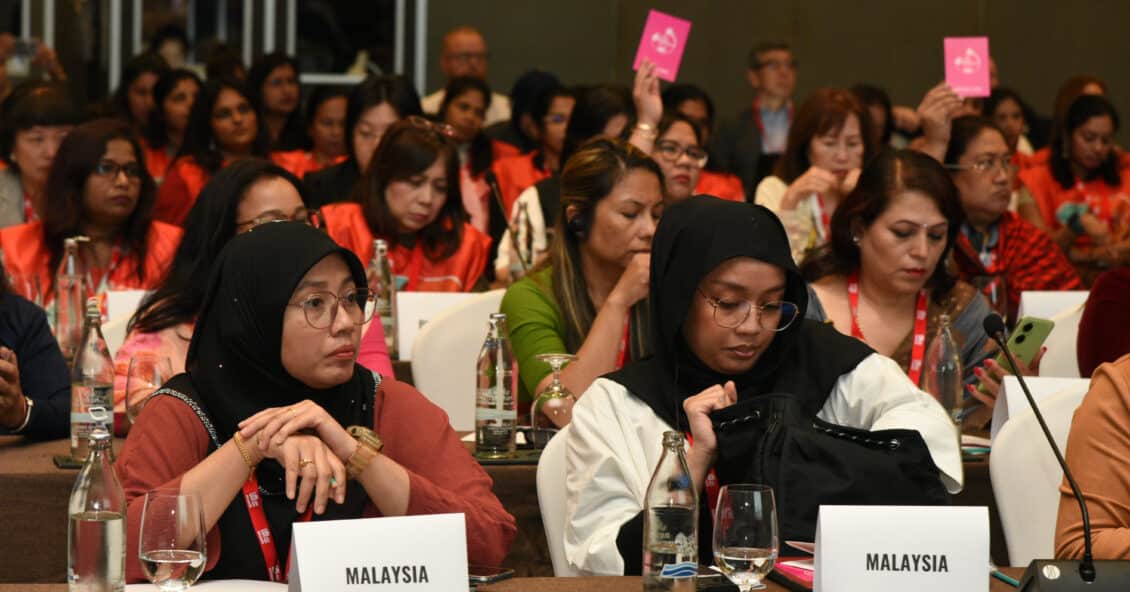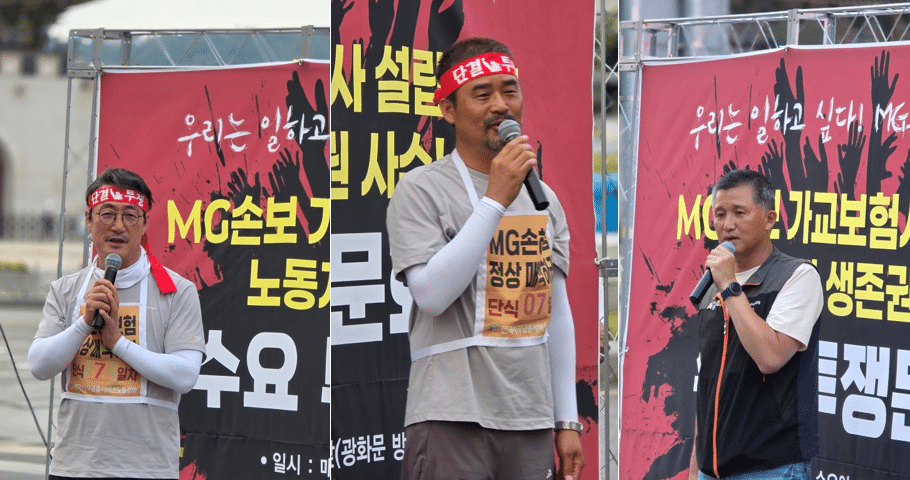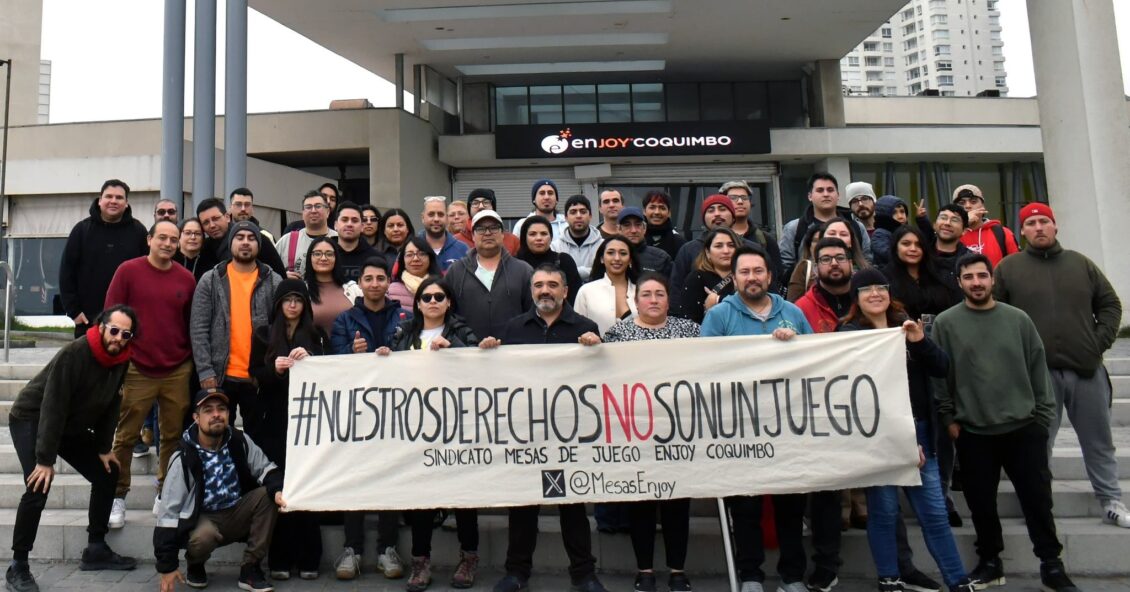Breaking barriers and building equality: UNI Asia & Pacific Women’s Conference inspires change in Bangkok
19.11.24
The 6th UNI Asia & Pacific Women’s Conference opened on 18 November in Bangkok, Thailand, uniting over 200 women from 20 countries under the theme “Together to Transform for Gender Equality.”
Sister Nilaimol Montreekanon, representing UNI Thailand Liaison Council officially welcomed participants to the conference, leading chants of ‘Su! Su!” (fight, fight) to build women’s power at work and in unions.
Ayako Nakata, UNI Asia & Pacific Women’s President from UA ZENSEN, Japan set the tone for the conference in her opening speech calling for women’s empowerment on the difficult road to gender equality.
“We must advocate for policies that empower women economically, socially and politically. Especially for Asian women, historically and culturally, our position in society has been very low. There are many issues to be addressed for Asian women compared to the world. We must fight against violence and harassment, discrimination, and any barriers that limit our full participation not only in the trade union but also in society,” Nakata declared, setting the tone for the event.
Chanisa Monthamanee, acting as M.C. and representing UNI postal union affiliate SEWU-THP, Thailand, hailed the conference as a historic moment for the democratic union movement in her country.
“Let’s take this opportunity to enrich ourselves with this wonderful international exchange that UNI Asia & Pacific offers us. We welcome our sisters from the South Asia and Southeast Asia mentoring program who are breaking barriers and paving the way for more women to participate in unions and hold decision-making positions,” she said.
UNI Equal Opportunities’ mentoring program has seen remarkable results in the region, with nearly half of its participants attaining decision-making roles in just three years, showcasing its transformative impact.
UNI Global Union’s Deputy General Secretary Alke Boessiger underscored union successes in the region, including creating safe factories in Bangladesh, lifting cleaners’ wages in Indonesia and organizing thousands of part-time workers in Japan.
“We can be proud that UNI and its unions take on some of the urgent problems facing working women today. And we WIN. Union issues – UNI’s issues – ARE women’s issues,” said Boessiger.
Tackling violence and harassment
UNI World Women’s President, Carol Scheffer from Ireland’s CWU, rallied the attendees to combat workplace harassment and domestic violence, both of which deeply affect women’s safety and livelihoods.
“We will stand up to sexual harassment in the workplace. We will say no more. We’re standing up to domestic violence, which creeps into the workplace,” said Scheffer. “I call on each of you to become agents of change – because you have the power within you.”
The persistent issue of customer aggression, which disproportionately impacts women in customer-facing roles, was highlighted by Gerard Dwyer, UNI President and Asia & Pacific Deputy President:
“True decent work is free from violence and free from intimidation. Customer aggression is a scourge for all of us and we must push back. UNI Asia & Pacific can take great pride in pushing against customer aggression and our affiliates SDA and UA Zensen have taken the lead,” said Dwyer, adding that over 20 affiliates have extensive campaigns against customer violence and aggression which disproportionately affects women and young people.”
Addressing the gender pay gap
Rajendra Acharya, Regional Secretary of UNI Asia & Pacific, emphasized the region’s pressing need to close the gender pay gap, which restricts women’s financial independence, strength and power.
“Women in the services sector are often paid less than men for the same work. We are focusing on closing the gender pay gap through equal pay policies and wage transparency,” he said. He also stressed the need to press more countries to ratify ILO Convention 190 to combat violence and harassment in the world of work.
Strategic priorities for the future
Day one of the conference included discussions on two motions, starting with strategic priorities for 2024–2028. Key goals outlined included:
- Increasing women’s representation in unions: Campaigns like UNI Equal Opportunities’ 40for40 and mentoring programs aim to empower women leaders.
- Combating violence and harassment: Advocacy for ILO C190 ratification, education on workplace violence and inclusion of these principles in collective agreements remain critical.
- Unions working for women: Gender-focused collective bargaining and policies addressing wage gaps, pensions and health and safety issues were highlighted as essential strategies.
Transforming for a Decent and Sustainable Future
The second motion, introduced by Sister Cheung Lai Ha from HKRRCGU, Hong Kong, focused on achieving decent work and sustainability through gender equality.
“In our knowledge-based economy, promoting decent employment and investing in human resources are vital for economic growth and social inclusion. Gender equality is essential not only for a sustainable future but also for achieving a just transition in the face of climate change,” she said.
Day 2 of the conference continues on 19 November.
UNI Asia & Pacific


